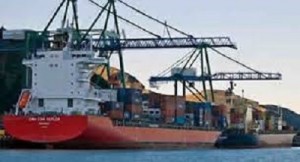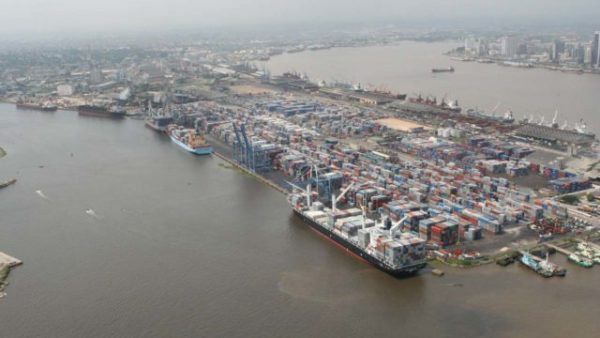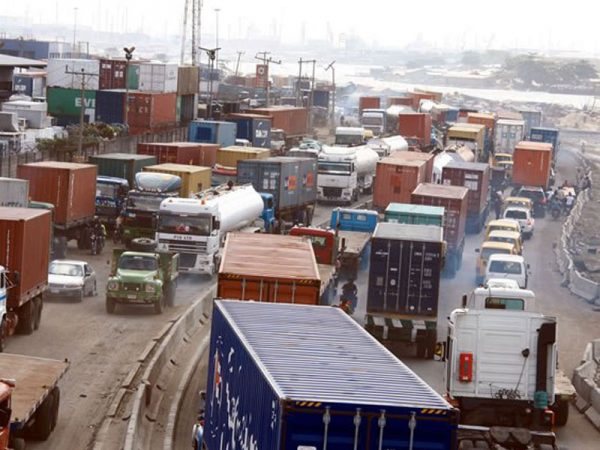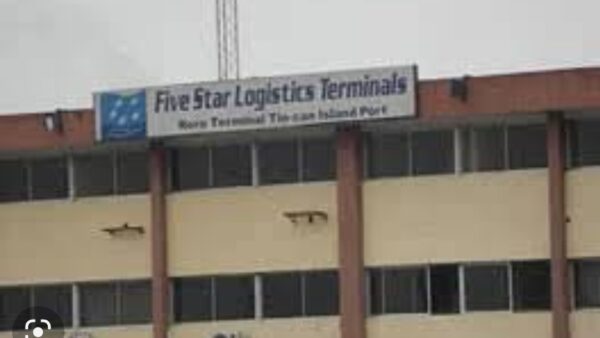The Nigerian Shipping Sector: The Potentials And The Headway
 The Nigeria shipping sector today is seen as a veritable tool for the growth of the nation’s economy. The sector could be harnessed to provide jobs, create wealth, promote skills acquisition and encourage entrepreneurship. The shipping industry also provides an opportunity for Nigeria to deviate from the over reliance on petroleum as the major source of generating revenue.
The Nigeria shipping sector today is seen as a veritable tool for the growth of the nation’s economy. The sector could be harnessed to provide jobs, create wealth, promote skills acquisition and encourage entrepreneurship. The shipping industry also provides an opportunity for Nigeria to deviate from the over reliance on petroleum as the major source of generating revenue.
Nigeria is blessed with a natural maritime endowment base that is vast and extensive, with a coastline of over 800km and an exclusive economic zone of over 200 nautical rules. Our inland water ways at 3,000km, is reputed to be one of the longest in the world. It comprises over 50 rivers that could support a vibrant intra-continental and intra-regional trade.
Nigeria’s seascape is located on the coast line corridors of the gulf of guinea, and the Bight of Benin, with 8 of her 36 states having littoral status. This coupled with our vast population places the country as a key player in intra-regional shipping trade.
There is no doubt about the inherent assets and opportunities in the Nigerian shipping sector, however, the passionate involvement and participation of Nigerians is required to optimally leverage on these benefits. It is believed that Nigeria’s gross domestic product (GDP) can be grown and sustained at 12% rather than the current 7.7%. How do we get indigenous participation in this shipping sector that has such enormous benefits?
One of the factors which could enable Nigeria explore its maritime endowment is the strategic utilization of its educational system. Most countries around the world adopt an educational system that is relevant to their environment. Each country has its unique needs which must be met by its education. Our educational institutions and curriculum need to have local relevance even if it meets the global standards because the scenario and peculiarities of Nigeria differs. Shipping and maritime related studies shouldn’t be exclusive to few tertiary institutions and specialized institutions. As a maritime endowed nation we ought to have maritime studies infused in secondary schools in states with littoral status while most of our universities should offer maritime studies.
The federal government also has a crucial role to play in ensuring we harness the potentials in the shipping sector. They should enforce laws and policies and thrive to encourage more indigenous participation because the shipping sector is like the heartbeat of the nation. The Cabotage act was created primarily to reserve the commercial transportation of goods and services within Nigerian coastal and inland waters to vessels flying the Nigerian flag and owned by Nigerians, but this hasn’t fully achieved its aim of growing indigenous shipping lines to participate in Coastal and Inland trade. The government has to ensure that a good act like the Cabotage actually accomplishes the purpose.
The level of awareness on the relevance and benefits of the shipping industry in Nigeria has to be increased. There is an assertion that Nigerians back the water, this means Nigerians turn a blind eye to the enormous benefits right before them in the maritime. There is so much emphasis on the oil and gas sector and more recently the telecommunications sector, but shipping has always been there and it will always be. If the awareness and importance of the shipping sector is raised to the status accorded to the oil and gas industry, the benefits will be immense to transforming the shipping sector.
Our seaports would have to rise above the competition posed in neighbouring African ports. Recently, it has been alleged by maritime stakeholders that shipping into Nigeria had become more expensive and the process more laborious than neighbouring seaports. Our policies, embargos and regulations should be geared towards giving Nigeria the advantage in shipping and not otherwise.
Another challenge facing the Nigerian seaports is the poor access roads. The nation’s seaports situated in Calabar, Onne, Port Harcourt, Lagos, Sapele, and Warri have roads all characterized by their deplorable condition. If Nigeria is to become a hub in the West and Central Sub-Regions with regards to shipping, these poor port access roads will have to be fixed. The gridlocks and accidents occasioned by the state of the roads have continuously weighed down patronage and participation in maritime business.
The commitment of the federal government to putting the shipping sector first would go a long way to transforming the sector. Laws would have to be made. Requisite awareness and relevance of the industry would have to be created. New deep seaports would have to be created. Port roads will have to be fixed. Intermodalism should be deployed in our transport system. We would need an automated port system with less complex procedures. These issues when addressed would enable the shipping sector swiftly transform the economic fortunes of Nigeria and its citizens. Nigeria can be a real hub of maritime trade in Africa, but things would have to be fixed now, not later.
By Kenneth Jukpor







